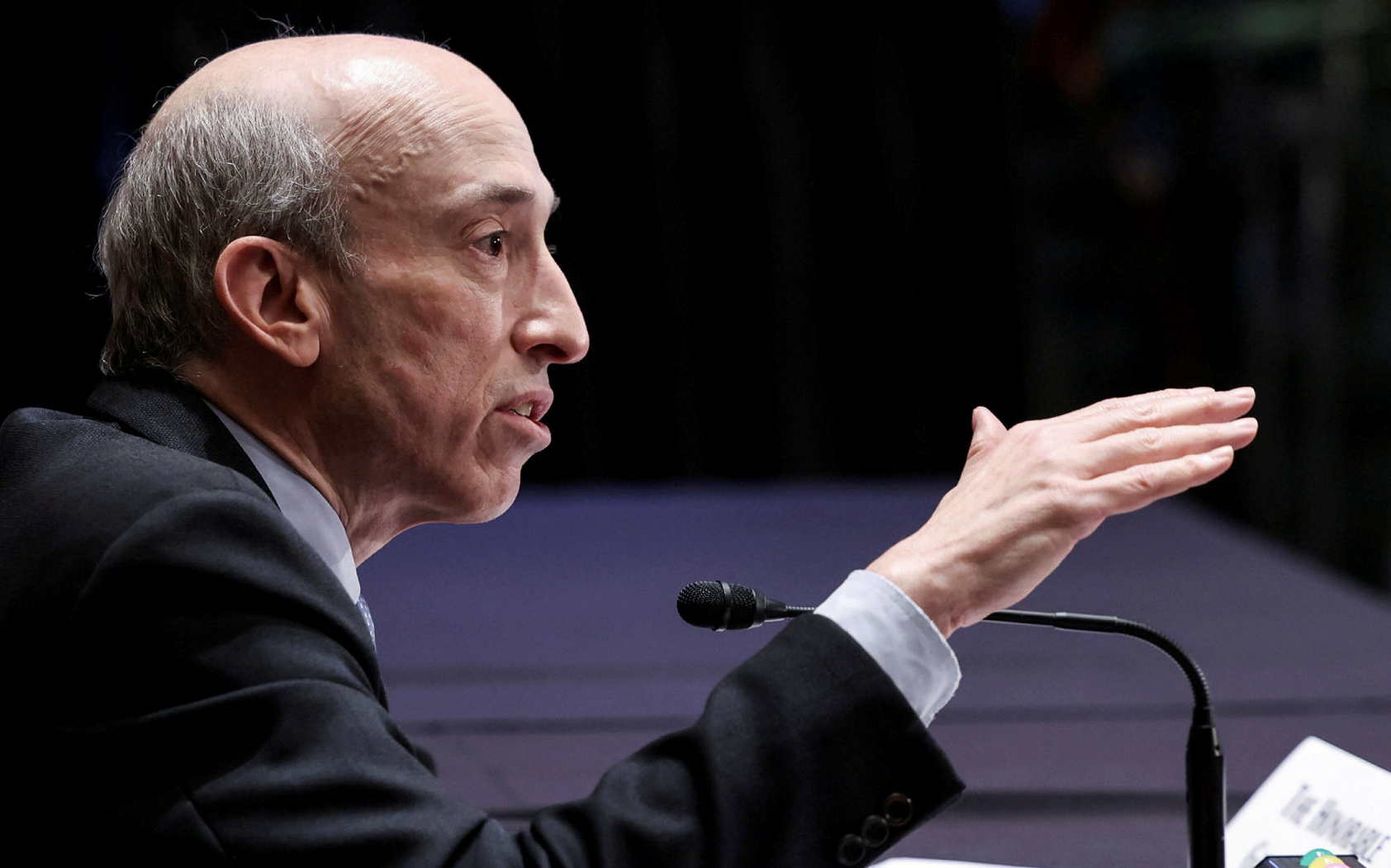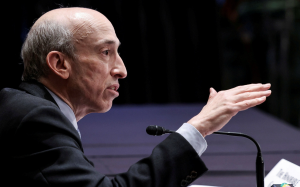Join Our Telegram channel to stay up to date on breaking news coverage
Gary Gensler, the chairman of the U.S. Securities and Exchange Commission (SEC), drew a striking parallel between the current state of the cryptocurrency market and the notorious stock market of the 1920s. Gensler’s comparison sheds light on his concerns regarding fraudsters and investor protection.
As the cryptocurrency market continues to evolve and gain mainstream attention, it is crucial to examine Gensler’s comments and explore their implications for digital assets’ future.
The Rise of Cryptocurrencies
Over the past decade, cryptocurrencies have emerged as a disruptive force, challenging traditional financial systems and capturing the imagination of investors worldwide. Led by Bitcoin, the first decentralized digital currency, the crypto market has experienced exponential growth.
It has attracted billions of dollars in investments and fostered the development of numerous blockchain-based projects.
During testimony before the Senate Banking Committee, Gary Gensler expressed his concerns about the crypto market, drawing parallels to the rampant fraud that plagued the stock market during the 1920s.
He highlighted the need for investor protection, transparency, and regulatory oversight to prevent cryptocurrency abuse. Gensler’s remarks were a stark reminder that while cryptocurrencies hold significant potential, they also carry inherent risks that must be addressed to ensure market integrity and safeguard investor interests.
Gensler’s comments emphasize the pressing need for regulatory clarity and oversight in crypto. The absence of a comprehensive regulatory framework has allowed fraudulent actors to exploit the lack of safeguards, leaving investors vulnerable to scams and market manipulation.
By comparing the current state of the crypto market to the 1920s stock market, Gensler urges regulators and lawmakers to prioritize the development of robust regulatory measures to foster investor confidence and protect the integrity of digital asset markets.
Enhancing Investor Protection
One core concern Gensler raised is the absence of investor protection within the cryptocurrency ecosystem. Traditional financial markets have established regulatory mechanisms to safeguard investors against fraud and manipulation.
However, cryptocurrencies’ decentralized and borderless nature poses unique challenges to implementing similar protections. Gensler’s call for enhanced regulatory measures aims to bridge this gap, providing investors with safeguards against fraudulent activities, Ponzi schemes, and market manipulation.
As the head of the SEC, Gensler plays a crucial role in shaping the regulatory landscape for cryptocurrencies. He has called for increased authority and resources to oversee the crypto market effectively.
The SEC’s mandate includes ensuring fair markets, facilitating capital formation, and protecting investors. Gensler’s comparison to the 1920s stock market is a powerful reminder that regulatory bodies must adapt and evolve to address the challenges posed by the rapidly growing crypto ecosystem.
Gary Gensler’s comparison between the crypto market and the fraudulent stock market of the 1920s serves as a wake-up call for regulators, investors, and industry participants. It highlights the urgent need for enhanced regulatory measures to combat fraud, increase transparency, and protect investors.
By collaborating with industry stakeholders, policymakers can strike a delicate balance that fosters innovation while safeguarding market integrity.
While Gary Gensler’s comments may raise concerns about the crypto market, they also present positive change opportunities. By addressing regulatory challenges, enhancing investor protection, and promoting transparency, regulators can foster an environment where legitimate projects can thrive, and investors can confidently participate.
The ongoing dialogue between regulators, industry players, and the public will be critical to shaping the future of cryptocurrencies. This will ensure the digital asset ecosystem’s long-term sustainability.
Read more:
Join Our Telegram channel to stay up to date on breaking news coverage


